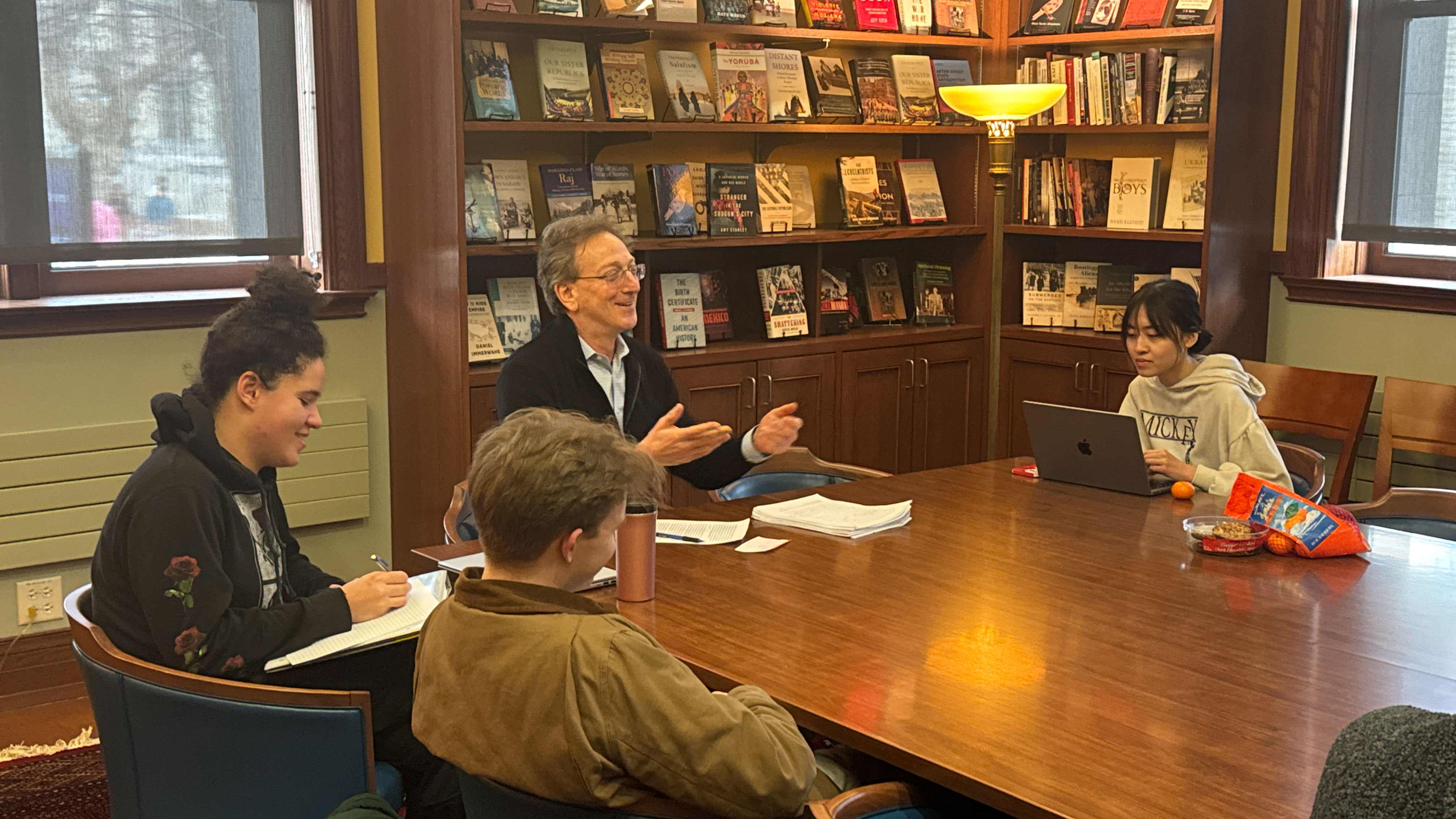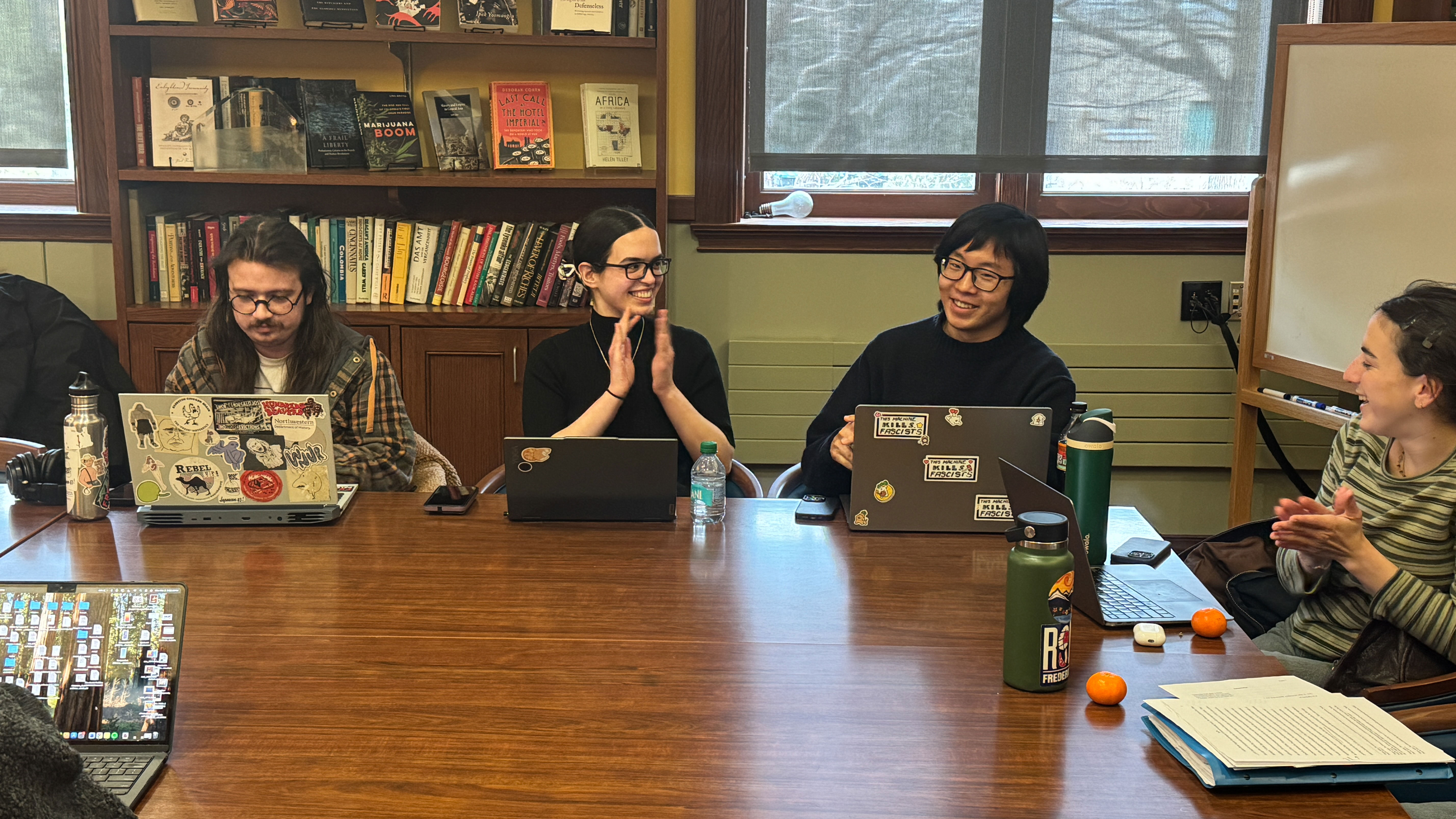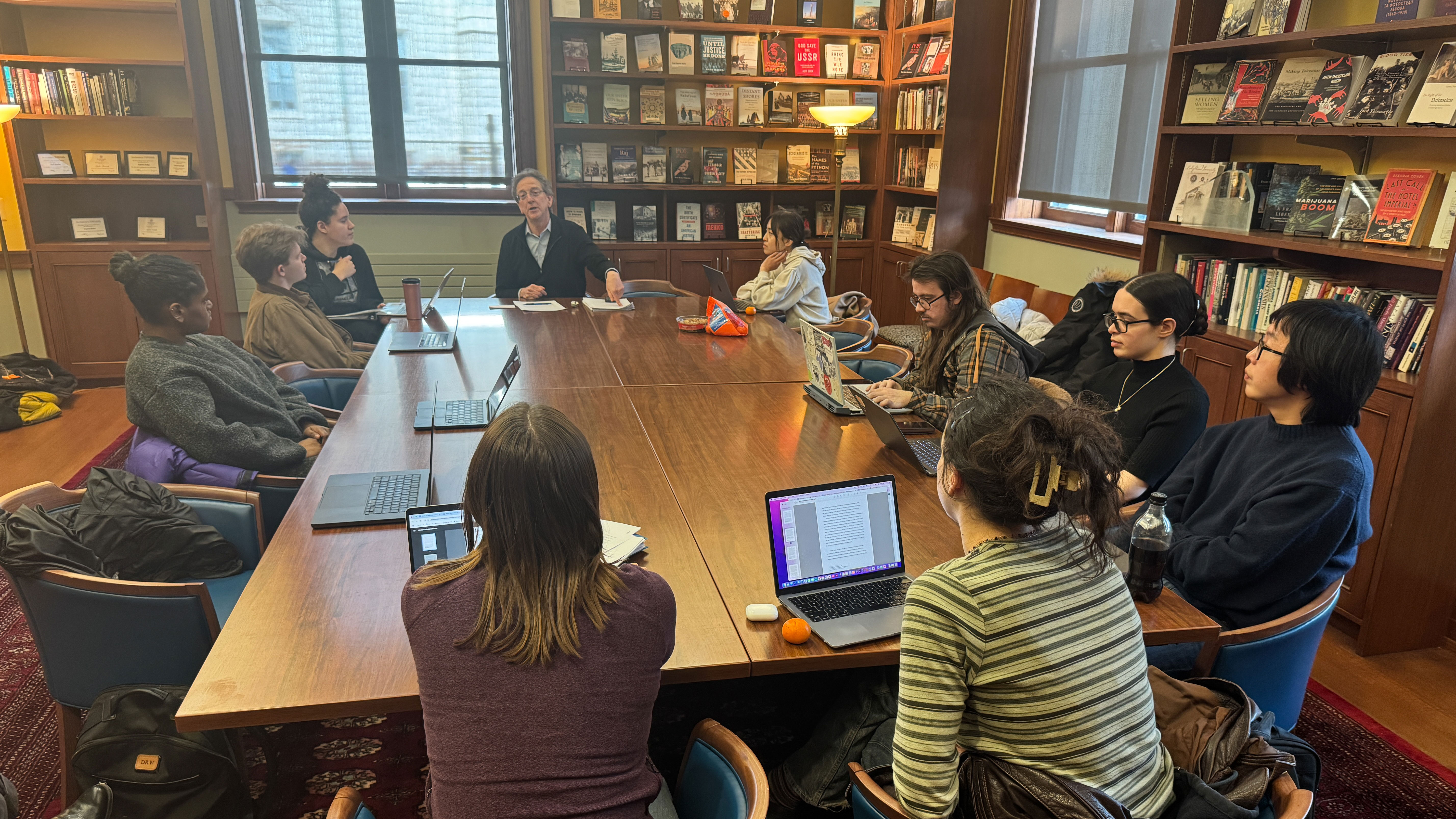A Community of Scholars: The History Honors Thesis
A Community of Scholars: The History Honors Thesis
By Kate Masur
Photography credit: Christina Alexandru
On a chilly day at the beginning of March, ten Northwestern History majors assembled for a two-and-a-half-hour workshop. This was a meeting of the Honors Thesis Seminar, the culmination of the undergraduate experience for the department’s strongest, most committed students. Caitlin Jimmar was up first, and the students were ready to work.
Professor Ken Alder began with a pep talk: “You’re all in great shape. All of you.”

Jimmar began by asking her classmates’ advice on how to open her thesis, an investigation of school re-segregation in twentieth-century Cincinnati: How should I talk about scaling up to the national level? Should I include more comparisons with other cities?
Suggestions poured in: Add examples of other cities to the introduction, some said. Or maybe use the conclusion to expand outward from Cincinnati? It was an engaging and supportive conversation about the craft of writing history.
The group turned next to Leila Narisetti’s thesis on the 1920s Riff War in Morocco. Is it a good idea to begin with a block quote? she wondered. What if I repeat that material later in a vignette?
All the thesis writers were forging ahead with ambitious pieces of scholarship, addressing topics ranging from Soviet anti-Nazi partisanship during WWII to the mid-twentieth-century global science of demography and population control. 
Jimmar, who plans to attend law school and is drawn to public interest law, said Professor Alder had done an “incredible job” with the seminar. “Peer review is so nice because we get together in small groups when each chapter is due. We read through each other's chapters, and I’m so invested in everyone's projects and giving each other feedback.” She liked how Alder had broken down the thesis into manageable pieces, provided plenty of opportunities for critique, and made himself readily available for meetings.
In class that day, Alder reminded students that spring break was coming up and that it was “important to stop working” for a spell. They would return refreshed and have five weeks to polish their work. “We’re building this object,” he said. “We’re making history.”

